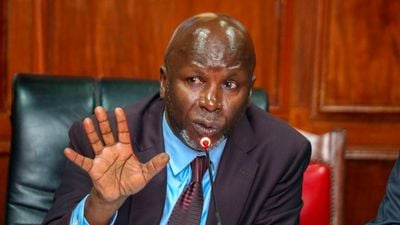Eight communities in Kenya have only 23 individuals in the public service out of 252,007 civil servants employed by the Public Service Commission (PSC).
A document tabled in the Senate reveals that two communities, Kikuyu and Kalenjin, have nearly half of all the civil servants at 96,248 which is gross over-representation in the public service.
The Kikuyu, with a national population of 8.1million or 17.13 per cent have 51,994 or 20.53 per cent of the total available jobs of 252,007.
Kalenjins, with a national population of 6.3 million or 13.37 per cent, have a cumulative 43,983 or 17.3 per cent of the total slots available in the public service.
Presented before the Senate National Cohesion and Equal Opportunities committee, the document indicates that the Kenyan Somali whose population is 2.7million based on the 2019 population census, has 6,801 or 5.85 per cent of the PSC jobs.
PSC Chair Anthony Muchiri in said that although the Kikuyu and Kalenjin communities are still grossly overrepresented, the commission is taking into consideration other marginalised communities.
Titled ‘Status on Equal Representation on the Recruitment Process in Kenya’s State Agencies’, Kenyan-American community has zero representation in the public service, Konso community has one representation, Dahalo two, Makonde two, Aweer three, Wayuu four and Kenyan European six, respectively.
Muchiri told the committee chaired by Marsabit Senator Mohammed Chute said the Kenya-Somali community is grossly under-represented while Turkana, Luhya and Mijikenda communities are under-represented.
The Luo community controls 7,774 or 10.36 per cent of positions while the Kamba community holds 6,874 or 9.16 per cent of employment in ministries and departments.
Kisii have 595 or 7.45 per cent positions while members of the Meru community hold 4,046 or 5.39 per cent of total employment in ministries and state departments.
Muchiri said 36 ethnic communities were represented in the ministries and state departments in line with the Kenya National Bureau of Statistics (KNBS) 2019 census, while nine ethnic communities were not represented.
Status implementation
Muchiri said the commission will undertake annual audits to determine the status of implementation of the affirmative action programmes, and make appropriate interventions in case of any challenges the implementing agencies face.
Article 234 (2)(a) (ii) of the Constitution has subject legislation bestowed on the Commission the mandate to appoint persons to hold or act in offices in the public service and confirm them in appointments.
The PSC report shows that the overall gender representation and inclusivity have improved from 31 per cent female in 2015/16 to 37.8 per cent during the 2022/23 financial year.
Article 54(2) of the constitution specifies that the State shall ensure the progressive implementation of the principle that at least five per cent of the members of the public in elective and appointive bodies are persons with disabilities.
Muchiri told the lawmakers that over the years the extent of overall ethnic representation and inclusivity of marginalised and minorities in the public service has improved from 35 during the 2015/2016 financial year to 45 communities by 2021/2022.
This is in accord with Article 56 (c) which provides that ―the state shall put in place affirmative action programmes to ensure that minorities and marginalised groups are provided with special opportunities for access to employment.
In addition, Section 10 (2)(d) of the Public Service (Values and Principles), Act 2015 serves as a guideline on the implementation of affirmative action for groups that may not be adequately represented in the public service or in a public institution.
Muchiri said in promoting ethnic inclusivity/representation the Commission has been guided by the proportionate representation of communities as reflected in the population census 2019, a move that has led to the majority of communities attaining normal representation as of the year 2021/2022.
Kenya Insights allows guest blogging, if you want to be published on Kenya’s most authoritative and accurate blog, have an expose, news TIPS, story angles, human interest stories, drop us an email on [email protected] or via Telegram

 Investigations1 week ago
Investigations1 week ago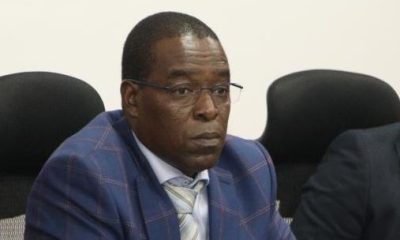
 Investigations1 week ago
Investigations1 week ago
 Investigations1 week ago
Investigations1 week ago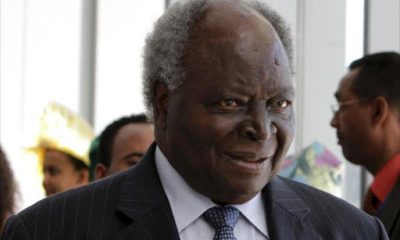
 Investigations1 week ago
Investigations1 week ago
 Opinion2 weeks ago
Opinion2 weeks ago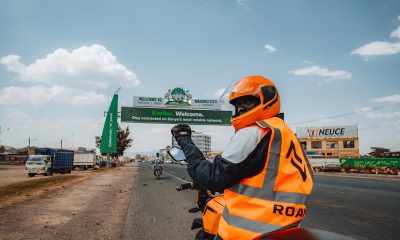
 News2 weeks ago
News2 weeks ago
 Investigations1 week ago
Investigations1 week ago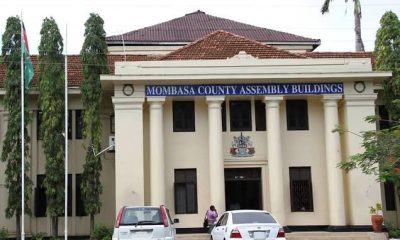
 Investigations1 week ago
Investigations1 week ago
